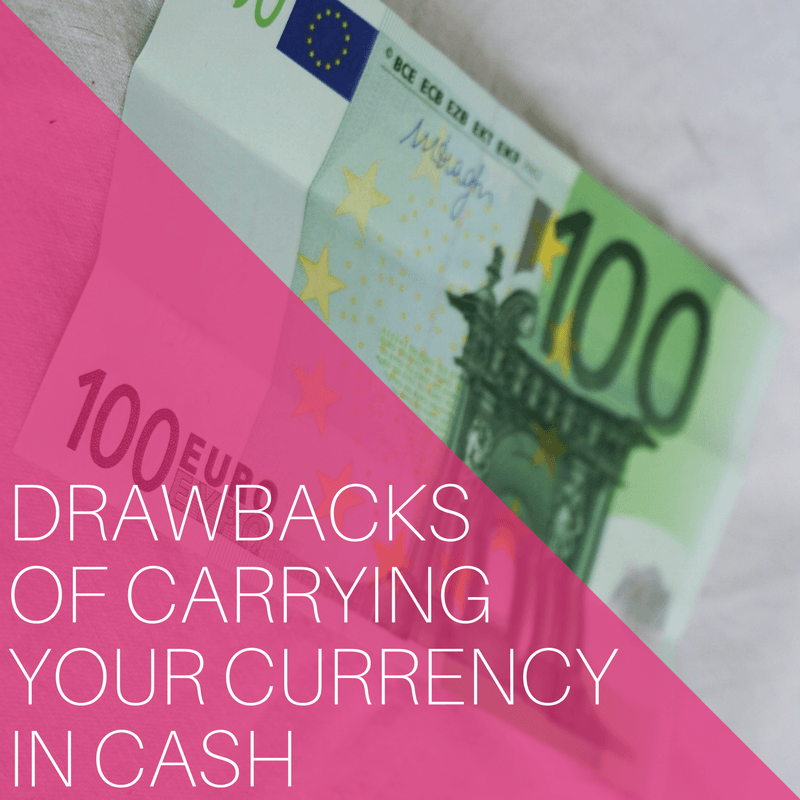Ten Top Tips On How To Maximize Your Currency Exchange Rate Margins
Anyone involved in the world of international finance that wants to travel, conduct business and manage investments or conduct international business must be familiar with the exchange rate margins. The difference between the buying and selling rates of currencies is known as the margin of exchange. This can influence the total cost of the transaction. These margins may vary between providers, impacting the cost you pay when exchanging money or how much profit you can make from investing. Understanding the exchange rate margins can help you make better choices and help you save money. Below are the top ten specific tips for managing the margins of exchange rates effectively.
1. Find out What is the Exchange Rate Margin Is
The spread in exchange rates or margin is the difference between what a currency is to purchase (ask) as well as the cost it takes to sell it (bid). This is a crucial concept for travellers, investors and companies as it impacts the amount you pay when you convert currencies. A smaller spread means a higher rate of exchange which will allow you to make more informed financial decision-making.
2. Compare margins among providers
Different financial institutions and financial services offer varying exchange rates. Make sure to check margins from multiple providers including exchange kiosks, banks and online platforms. Websites like XE.com, OANDA and others can give you real-time insights on margins and rates. You then can select the best option for your transaction.
3. Understanding the influences of markets on Margin
The exchange rate margin can be affected in numerous ways, for example market volatility, geopolitical factors as well as economic indicators. For example, a sudden economic crisis or political instability in a nation can increase the margins due to an increase in risk. By being aware of these market trends, you will be able to predict changes in currency rates and make timely decision about currency transactions.
4. Exchange online currency platforms
Online currency exchange platforms offer better rates and lower costs than traditional banks and physical exchange services. Wise (formerly TransferWise), and Revolut are two companies which offer real-time exchange rates, low charges, and more profit margins. Making use of these platforms will significantly lower the cost of converting currencies to be used for business or travel purposes.
5. Timing Your Currency Exchange
If you decide to change currency, it could impact your margins. Exchange rates fluctuate all throughout the day based on market's demand and supply. These fluctuations can be monitored to identify the best timing to exchange currencies and possibly result in better margins. Tools that track trend of currencies are helpful when making these choices.
6. Hedging Currency with Leverage
For investors and businesses, currency hedging is a great way to manage exchange rate margins. Hedging is the act of locking in future transaction exchange rates by using financial instruments, which guard against any adverse fluctuations in rates of exchange. This helps reduce the impact of margins growing and improve the stability of profits for multinational companies.
7. Keep an eye on Economic Indicators
Different economic indicators including the rate of inflation, interest rates and employment statistics can influence the exchange rate. For instance, a nation with increasing interest rates may attract foreign investors, thereby strengthening its currency. The monitoring of these indicators can provide an insight into possible currency fluctuations. It is then possible to adjust your strategy.
8. Travelers should consider the local currency when travelling
Pay with local currency when you travel instead of your currency at home. This practice helps you avoid undesirable exchange rate rates that typically come with dynamic currency conversion (DCC) choices offered by merchants. When you pay in local currency, it provides customers with a higher conversion rate. It can reduce the overall price of purchases.
9. Beware of hidden fees
Be aware of hidden charges imposed by companies that exchange currencies. These fees could include transaction, service, and commissions that can add to the margins that you see. To avoid any unexpected charges make sure you read the fine print before you make a decision to exchange currency.
10. Speak with a financial professional to handle large transactions
Get in touch with experts in currency or financial specialists if you're dealing with large quantities of cash or complex currency exchanges. This can give you valuable insight. These experts can assist you to understand the exchange rate margins and suggest strategies for reducing costs. Their expertise is particularly useful for businesses or investors looking to increase their holdings of currency.
By following these detailed guidelines on margins of exchange, you can navigate the maze of currency transactions more effectively, whether you're traveling in business, conducting business, or managing your investments. If you know how to manage exchange rate margins, you will be able to make better informed financial decisions that align with your financial goals. You will save money and improve your financial strategies. Follow the recommended USD to AED examples for blog info including rmb to dollar, 1 us dollar in indian rupees, canadian dollar to usd, dollar to php, yen to us dollar, usd to mexican peso, convert euro to usd, convert pounds to dollars, dollar to inr, dollar to php peso and more.

Ten Tips On How To Avoid Currency Exchange Limits And Rates
Limits to transactions are vital for any financial transaction such as travel abroad, managing investments, or carrying out business. They are the highest amount you can invest during a particular time. They are typically set by banks, financial institutions or payment processors. Knowing your limits for transactions is vital to optimize your financial strategies and avoid delays or fees. Limitations on transactions could influence foreign purchases as well as cash withdrawals for those who travel. Businesses may be affected by them, because they can influence payment processing or cash flow management. Investors must also be aware of the transaction limits when buying or selling assets. Here are ten tips to help you control transaction limits effectively in your financial transactions.
1. Be aware of the limits on transactions at your bank.
Typically, every financial institution or bank has established limitations on transactions such as transfers, purchases, and withdrawals. It is essential to know these limits prior to making purchases of a large amount or travel. You can manage your finances more effectively and avoid any issues if you try to access funds or buy items from abroad. Your account limits are available on the site of your bank, or through their customer service.
2. Make sure you have cash withdrawals ready when Traveling
If you're traveling take note of your cash withdrawals to stay within your bank's transaction limit. To figure out how much cash you will need, know the daily limit. If you'd like to avoid running out cash and make more withdrawals in one go. Also, be aware of ATM fees for foreign locations. You should also have a backup plan of payment in the event that the withdrawal limits you have set are exceeded.
3. Utilize Multiple Payment Methods
It's not a good decision to depend on only one method of payment in particular when there are transaction limits. To ensure that you always have funds available, make use of the combination of debit and credit cards as well as cash and mobile payment apps. This method lets you keep track of your finances while traveling or doing business while not exceeding the limit of a single account.
4. Be aware of your transactions' activity on a regular basis
Monitoring your transactions regularly activities can help you remain alert to your spending and ensure that you aren't over your limit. A lot of banks have mobile applications which allow you to track transactions in real-time, giving you insights into your account balance and any fees. Keeping an eye on your account's activity will assist you in managing your finances efficiently and avoid unanticipated issues when you purchase.
5. Contact Us For Information About International Transaction Limits
If you intend to withdraw money from abroad and make purchases, you should inquire with your bank about what their restrictions are for international transactions. Some banks restrict foreign transactions. This can limit your ability to purchase or access funds when you travel across the globe. These limits will allow you to plan ahead and avoid delays when traveling.
6. You might want to consider using alerts on transactions
Many financial institutions, including banks, have alerts that inform you when you're nearing the limits of transactions or if a transaction has been completed. These alerts can help you control your finances and avoid exceeding the limit. This feature is especially useful for travelers who may be more prone to losing the balance of their expenses while traveling.
7. Be aware of the daily and monthly limits
– Transaction limits can vary depending on the timeframe like monthly or daily limits. The bank you use may permit you to withdraw money per day, but limit monthly transactions. Understanding these timeframes can assist you in planning your transactions effectively, ensuring that you have funds available when needed without exceeding your limit.
8. Check with your bank regarding temporary limits and increases
If you are concerned that you will need to conduct more substantial transactions, speak to your bank regarding possible short-term limit increment. Many banks will accept requests for higher limits, provided you have a legitimate reason. Contact your bank prior to the date you want to discuss the details of your request and to provide any required documentation.
Examine the limits of the payment platform
Be aware that payment processors like PayPal, Venmo or others impose limits on transactions. Depending on the status of the account verification, as well as the history of users, each platform may have different maximum transactions limits. Check these limits prior to making any transactions to avoid delays or interruptions when processing your payment.
10. Inform yourself about investment limits
for investors, transaction limitations could apply for the purchase or sale of assets through brokerage accounts. These limitations can limit your ability, during unstable markets, to efficiently execute trades. Think about using limit orders or other strategies for managing your investments. Familiarize yourselves with the policies of your broker on transaction limitations.
You can better manage your transactions by managing your transactions effectively. This will allow you to more efficiently navigate the maze of travelling, conducting business, or monitoring your investments. Understanding your bank’s policies as well as the various payment options, and planning for cash withdraws will allow you to make better decisions. This knowledge will ultimately aid you in avoiding charges and interruptions as well as improve your financial plan. Have a look at the best read full article about eur huf for blog info including us to peso, swiss franc to usd, us dollar to rmb, usd to pkr, pesos to dollars, usdthb, usd to pakistani rupee, dollar to yen, us dollar to rupees, dollar to php peso and more.
